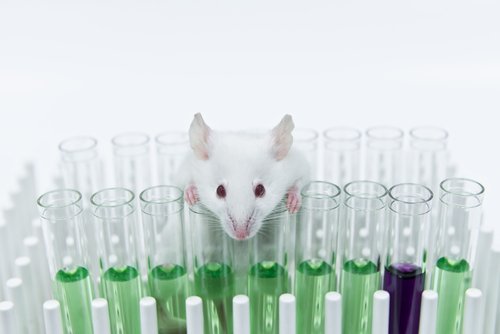Former Cancer Therapy Candidate Improves Muscle Function in Duchenne MD Mice

A former investigational drug initially designed to target cancer was found to have therapeutic potential for Duchenne muscular dystrophy (DMD), according to an article published in the scientific journal Molecular Therapy.
The study, “SU9516 Increases α7β1 Integrin and Ameliorates Disease Progression in the mdx Mouse Model of Duchenne Muscular Dystrophy,” was conducted by researchers at the University of Nevada, Reno School of Medicine (UNR Med) in collaboration with the National Institutes of Health’s National Center for Advancing Translational Sciences (NCATS).
Previous studies conducted by the UNR Med research team identified an important mediator of the symptoms of DMD, the structural protein called α7β1 integrin. Increasing the levels of α7β1 in experimental mouse models was shown to reduce DMD symptoms and slow the progress of the disease.
To find ways to therapeutically target this molecule, the researchers tested a large library of more than 350,000 compounds with proven pharmacological activities that could potentially increase the levels of α7β1 integrin. Among the tested candidates, they identified SU9516, a compound previously developed to target leukemia cells.
Researchers tested the effects of SU9516 in human and mouse DMD muscle cells to analyze its potential. They were able to confirm SU9516 led to an increased production of α7β1 integrin in these cells. In addition, this compound was able to promote regeneration of muscle cells and the formation of new muscle fibers.
“Integrin stabilizes muscle structure and helps stimulate muscle repair and regeneration,” Dean Burkin, PhD, professor of pharmacology at UNR Med and senior author of the study, said in a news release.
“If we can artificially increase its production with drugs, we think it can help protect muscle cells from damage,” Burkin added.
Oral administration of SU9516 to mice with DMD was seen to significantly raise the production of α7β1 to therapeutic levels by muscle cells. The DMD animals treated with SU9516 improved their body mass and improved their muscle function and strength compared to those seen in healthy animal controls. Overall, the results of this study demonstrate the potential of SU9516 to prevent DMD progression.
“Our findings open the door to develop new drug treatments for DMD,” said Juan Marugan, PhD, acting branch chief of the NCATS Chemical Genomics Center.
The research team is planning to continue its work in collaboration with medicinal chemists to redirect the design of the drug candidate specifically for DMD and remove any potential toxic anti-cancer elements.
Burkin suggested that the compound may be used for other muscle conditions with unmet medical needs, either alone or in combination with other therapies.






